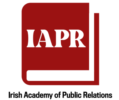This year’s Nobel Peace Prize has celebrated freedom of expression, but subtly criticised social media. Professional communicators should take note, writes Lukasz Swiatek.
This year’s Nobel Peace Prize decision is a win for media freedom. The accolade has recognised the long fight for free expression waged by two journalists: Maria Ressa (from the Philippines) and Dmitry Andreyevich Muratov (from Russia).
The Norwegian Nobel Committee, which awards the prize, has focused on both journalists’ work in their home countries. It has praised the pair for confronting authoritarianism, and for persevering in the face of threats, harassment, and violence.

https://www.nobelprize.org/prizes/peace/2021/press-release/Celebrating communication freedom
Ressa, the co-founder of the digital media company Rappler, has been lauded particularly for challenging president Rodrigo Duterte’s deadly anti-drug campaign. Muratov, the editor-in-chief and co-founder of the independent newspaper Novaja Gazeta, has been singled out for speaking truth to power, as well as supporting other journalists.
The awarding body has been at pains to emphasise the broader links between journalism, media freedom, and peace. “The Norwegian Nobel Committee is convinced that freedom of expression and freedom of information help to ensure an informed public,” it has said. “These rights are crucial prerequisites for democracy and protect against war and conflict.”
The award comes at a time when freedom of expression and respect for journalists have declined in many parts of the world in recent years. The World Press Freedom Index, put together by Reporters Without Borders, has highlighted “a dramatic deterioration” in people’s access to information, as well as a rise in obstacles to news coverage.
The COVID-19 pandemic has contributed to the problem. Human Rights Watch has found that more than 80 governments have used the pandemic to justify violations to their citizens’ exercise of free speech. In many countries, journalists have been imprisoned and fined, as well as assaulted by military or police forces.
Scolding social media
Not all media have been given the same positive treatment by the Norwegian Nobel committee. In announcing the decision, the organisation commented that Ressa and her company, Rappler, have “documented how social media is being used to spread fake news, harass opponents and manipulate public discourse”. This subtle criticism, in just the one sentence, appeared roughly a third of the way through the announcement.
Like many activists, Ressa (and her team) initially used social media for their communication activities. Over time, they realised that fake accounts were being created to spread fake news. More concerningly, they also became the victims of growing social media threats and attacks. In an interview, Ressa commented that realising what was taking place “was like seeing the heart of darkness”.

The Norwegian Nobel committee is clearly concerned about increasingly troubling developments relating to social media. Many organisations (including governments) around the world are also worried. Here, Australia’s Prime Minister (Scott Morrison) ” has labelled social media a “coward’s palace”.
The social media giants continue to make headlines for all the wrong reasons. One of the most recent developments has involved a former Facebook employee, Frances Haugen, making explosive whistleblowing claims that the company puts profits before people’s safety. Instagram has also become the focus of global attention following revelations that the platform’s owners have known about the harm it does to teenagers’ mental health and, specifically, teenage girls’ body image issues.
Professional communicators, take note
The subtle but clear scolding that social media have received from the Nobel committee should be making alarm bells ring for professional communicators. The messages connected to the Peace Prize resonate widely because of the stature of the accolade. The awarders of the world’s preeminent peace prize have conveyed an unmistakable message that the conflict and harm that social media help to facilitate are unacceptable.
As such, professional communicators need to be increasingly mindful of the different ways in which they use social media. Whether they work in-house or on the client-side, communicators need to ensure that their social media content, and activities that engage users on different platforms, won’t result in users being harmed or reputations being damaged.

